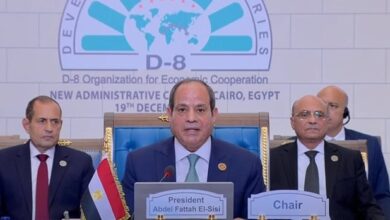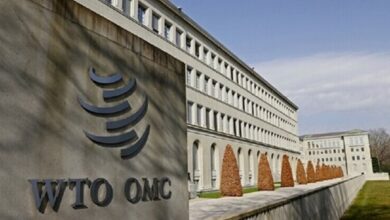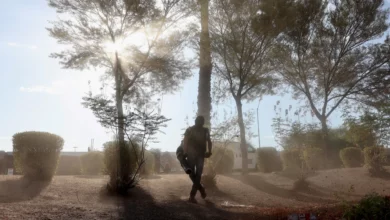Almost 200 nations agreed on Saturday to modest steps to combat climate change, including a new fund to help poor countries, and put off major disputes until 2011 and beyond.
"This is a new era of international cooperation on climate change," Mexican Foreign Minister Patricia Espinosa told delegates at the end of two weeks of talks after breaking the deadlock between rich and poor countries.
The deal, reached at marathon overnight talks, comprises a plan to design a Green Climate Fund, measures to protect tropical forests and ways to share clean energy technologies and help developing nations adapt to climate change.
It also reaffirms a goal of raising an annual US$100 billion in aid for poor countries by 2020 and sets a target of limiting a rise in average world temperatures to below 2 degrees Celsius over pre-industrial times.
"The most important thing is that the multilateral process has received a shot in the arm, it had reached an historic low. It will fight another day," said Indian Environment Minister Jairam Ramesh. "It could yet fail."
The talks had lowered expectations after US President Barack Obama and other world leaders failed to agree on a treaty at a summit in Copenhagen last year. Cancun sets no firm deadlines for an elusive legally binding accord.
Britain's energy and climate secretary Chris Huhne said that Cancun made it more likely that the European Union would toughen cuts in greenhouse gas emissions, to 30 percent below 1990 levels from a current 20 percent.
"I think it definitely makes an agreement on 30 percent in the EU more likely," he said of the EU contribution to avert what the UN panel of climate scientists says will be more floods, droughts, desertification, mudslides and rising ocean levels.
Espinosa banged down her gavel on Saturday's accord despite objections by Bolivia, which wanted to demand far deeper cuts in greenhouse gases by rich nations, saying their climate policies were causing "genocide" with 300,000 deaths a year.
"I urge you to reconsider," Bolivian delegate Pablo Solon told Espinosa. After repeated anti-capitalist speeches by Solon, Espinosa retorted that Bolivia's objections would be noted in a final report but could not derail the accord by 190 nations.
The deal was unlocked after delegates simply put off until 2011 and 2012 a dispute between rich and poor nations over the future of the UN's Kyoto Protocol, which obliges almost 40 rich nations to cut emissions in a first period until end-2012.
"Cancun may have saved the process but it did not yet save the climate," said Wendel Trio of Greenpeace.
Japan, Canada and Russia insisted at the talks that they will not extend Kyoto, demanding instead that all major emitters including the United States, China and India also join in a new global deal.
But developing nations say that rich Kyoto countries, which have burned the most fossil fuels since the Industrial Revolution, have to extend the agreement beyond 2012 before the poor agree to measures to curb their emissions.
Washington never signed up for Kyoto, arguing that it wrongly omitted targets for developing nations and would cost US jobs. Obama's hopes of legislating cuts have vanished after Republican gains in mid-term elections.
Many of the accords from Cancun simply firm up non-binding deals from Copenhagen, which were endorsed by only 140 nations. Todd Stern, the US climate envoy, said the steps taken in Copenhagen were "carried forward in a really exceptional way here today."
"It's really pretty historic," said Christiana Figueres, head of the UN Climate Change Secretariat.
"It's the first time that countries have agreed to such a broad set of instruments and tools that are going to help developing countries in particular," she said.




